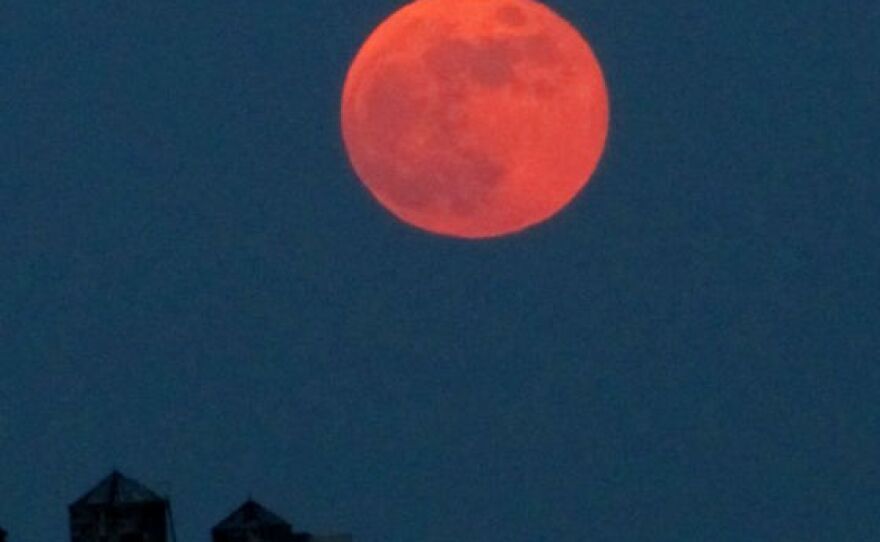Did you forget to set your alarm overnight to catch the "blood moon?" NASA has posted video of Tuesday morning's total lunar eclipse. Watch it:
There were "whistles, cheers and howls" early Tuesday on the grounds of the Griffith Observatory in Los Angeles as the moon turned red during a total lunar eclipse.
"Telescopes dotting the lawn pointed upward and southward, as the moon hovered above the observatory" and visitors who had packed the grassy lawn "scrambled toward the front of Griffith Observatory, pointing up at the reddening moon."
Here are images of the lunar eclipse over Texas:
The moon turns red over the Capitol in Austin, TX, during total .
— Jay Janner (@jayjanner)
Last nights blood moon over Texas
— Mrs Paul... (@PaulsWife1995)
Original post: Even if you donŌĆÖt need to stay up late Monday night to finish taxes, you might want to. Starting after midnight, there will be whatŌĆÖs called a ŌĆ£blood moon.ŌĆØ ItŌĆÖs a full lunar eclipse, and itŌĆÖs the first of a rare series of eclipses over the next two years.
As earthŌĆÖs shadow crosses in front of the moon late Monday night, we will begin to see a dull, red glow, similar to the color visible at sunset.
, a planetary scientist and associate professor at the , explains the colorful eclipse is the first of four, consecutive total lunar eclipses occurring at approximately six-month intervals.
ŌĆ£And what makes this particular tetrad special even though there will be nine in the 21st century, is that it is entirely visible from North America and specifically from the U.S. and Texas,ŌĆØ Urquhart told ╦─╗óė░į║.
To catch a glimpse, Urquhart says start looking high in the night sky around 1 a.m.
The moon will appear to vanish, she says, and then youŌĆÖll see that eerie, blood red glow.




